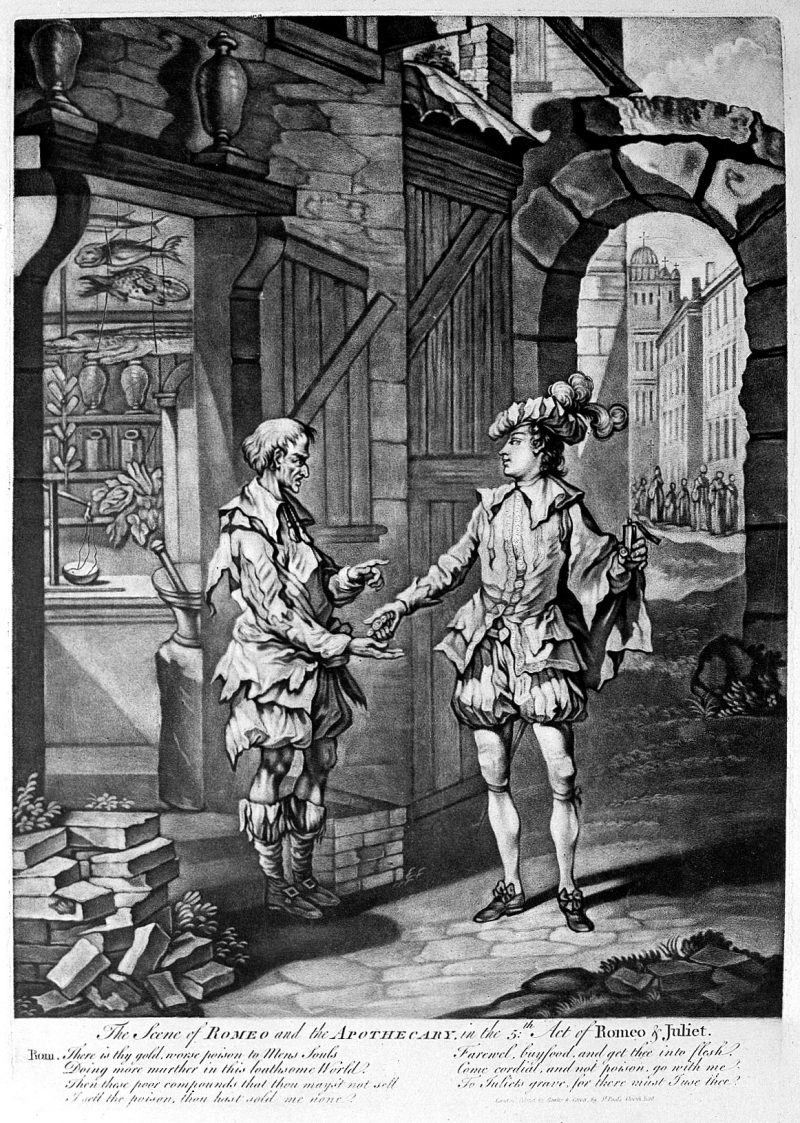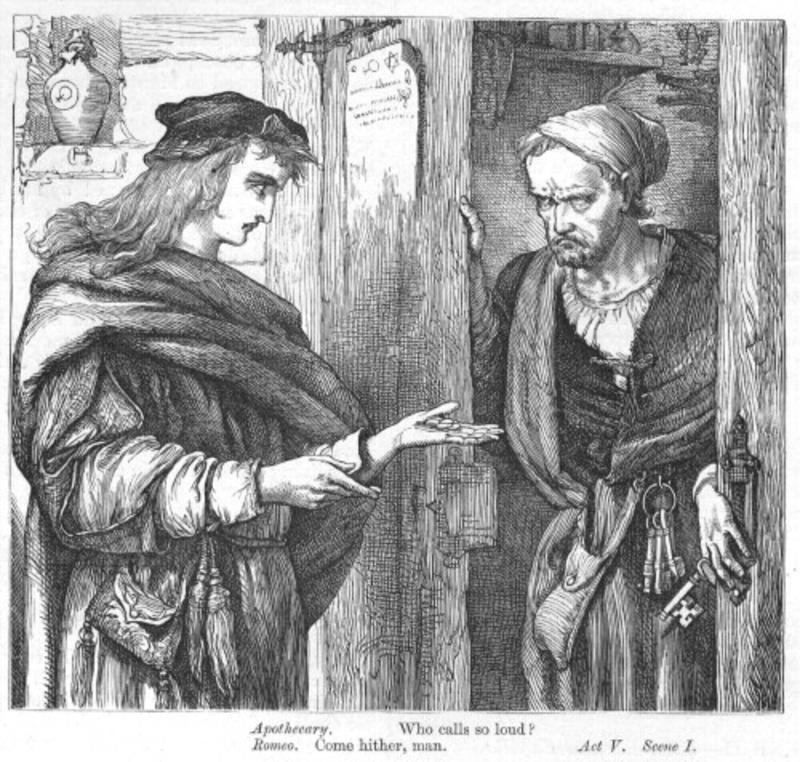How does Romeo persuade the skeptical Apothecary to offer him poison?
When Romeo knocks on his door and asks, "A dram of poison" (V.i.60), the Apothecary refuses, stating that he could be executed for selling lethal poisons. "Such mortal drugs I have," the Apothecary says to Romeo, "but Mantua's law / Is death to any he that utters them" (V.i.66-67). Romeo reacts by remarking on the Apothecary's thin and despondent appearance, and he wonders why the man could fear death or protect the law when he himself appears to be so bleak:
Art thou so bare and full of wretchedness,
And fearest to die? Famine is in thy cheeks;
Need and oppression starveth in thy eyes;
Contempt and beggary hangs upon thy back.
The world is not thy friend, nor the world’s law.
The world affords no law to make thee rich. (V.i.68–73)
Romeo argues that the law prohibiting the sale of poison hinders the Apothecary from making a living. Using wordplay on "afford," meaning both "able to pay" and "able to offer," Romeo suggests that, just as the Apothecary can't afford to live well, the law doesn't afford him a decent life. To break free from this dilemma, the Apothecary must reject the law. Romeo appeals to the Apothecary's survival instincts, and begrudgingly, the Apothecary agrees to take Romeo's money, stating, "My poverty, but not my will, consents" (V.i.75).

















